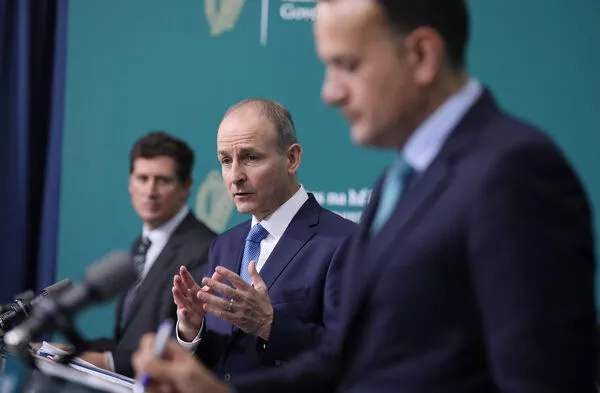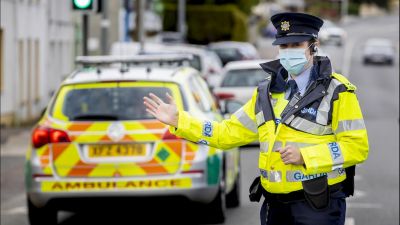Up to 25,000 people will be impacted by the temporary suspension of the contact tracing system, the Government has been warned.
Minister for Health Stephen Donnelly is under fire for not being aware of the problem which led to thousands of close contacts of positive Covid-19 cases not being contacted by the HSE because the system was overwhelmed.
In a stark warning chief medical officer Dr Tony Holohon in recent days said we are at the point where the "scale of infection in the population is simply beyond the capacity of any level of resourced contact tracing process, where we are simply not going to be able to map and contact trace".
A further 1,167 confirmed cases and three deaths were reported yesterday.
It has emerged the contact tracing system was so overwhelmed at the weekend that between 2,000 and 2,500 people who tested positive have been asked to do their own "DIY contact tracing".
The HSE is asking these people to tell their own close contacts to contact GPs immediately to seek a Covid-19 test.
Medical experts have said as many as ten times the number of people who tested positive could be impacted if normal criteria relating to contact tracing is applied.
Tánaiste Leo Varadkar last night hit out at the HSE and told a private meeting of the Fine Gael parliamentary party that it was "very unfair" to "dump" the tracing problem on GPs.
It is understood that Mr Varadkar told party colleagues that hiring people to contract trace is one of the least expensive measures but one of the most effective. He said the HSE was never told that they wouldn't be given enough funding for this.
Mr Varadkar added that the Government had been reassured that the HSE would rehire and redeploy people in the case of a second wave and that had clearly not happened.

Meanwhile, GPs and opposition TDs have blamed serious delays in employing up to 1,500 qualified people who signed up to the 'Be on Call for Ireland initiative' for the breakdown in contact tracing in recent days.
Dr Illona Duffy said a number of colleagues applied to work as contact tracers "months ago" but are still waiting to be employed.
"I talked to GPs earlier this week who had volunteered to be contact tracers, people who either work part-time or were semi-retired. They volunteered months ago and they're still going through the process.
"One GP told me that she was asked for her Leaving Cert results. Now, how ridiculous is that and how bureaucratic is that," the Monaghan-based GP asked.
Public health expert Professor Anthony Staines said he was “disappointed” but not surprised that the contact tracing system became overwhelmed and said it was “frustrating” that not enough public health staff were put in place despite repeated calls since February this year.
“It’s a matter of having bodies on the ground, not in call centres, but working in regional public health units. That’s the model internationally and it’s how everybody else does it,” he added.
In the Dáil, Taoiseach Micheál Martin told Opposition leaders that he was "not happy" but said the HSE has now "reset the process" and recruitment was ongoing.
There is considerable disquiet among Cabinet ministers as to why Mr Donnelly was not told about this matter during the extensive discussions throughout the weekend with one minister describing the situation as “amateur hour”.
But Mr Donnelly strongly denied that the tracing system is in crisis at a meeting of the Fianna Fáil parliamentary party last night.

Meanwhile, Government sources involved in the mammoth negotiations which led to the decision to move the country to Level 5 have warned a third lockdown will be inevitable in December or January if Covid rates spike again after the current six-week lockdown.
Sources said that counties Tipperary, Waterford and Wicklow could see their restriction levels reduced ahead of the rest of the country as their case numbers are considerably lower than most others.
That lowering could happen after the 4-week review of the lockdown.
Border counties, Government sources have warned, are likely to remain at a higher level restriction for much longer given the cross-border movement and the high incidence rate.







